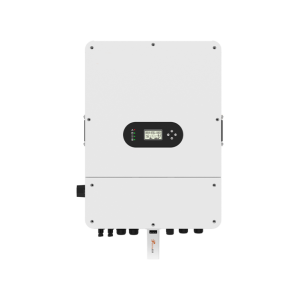目录
ToggleWith the global energy transition occurring, photovoltaic (PV) systems are becoming an increasingly important tool for decreasing our dependency on fossil fuels. Photovoltaic batteries, essential for storing solar energy for later use, are central to this transformation. This blog will discuss the definition, operation, and significance of photovoltaic batteries in the global quest for sustainable energy solutions.
1. What Are Photovoltaic Batteries?
Photovoltaic batteries, sometimes referred to as solar batteries or PV batteries, are devices for storing energy that stores surplus power produced by solar panels. These batteries enable residences, companies, and industrial facilities to utilize stored energy during periods when sunshine is scarce, such as at night or on overcast days. PV batteries ensure that solar power systems can operate off the grid or increase the efficiency of grid-tied systems by storing excess energy.

2. How Do Photovoltaic Batteries Work?
An inverter, batteries for energy storage, and solar panels make up a photovoltaic system. This is how the procedure is broken down:
- Solar Energy Collection: Solar panels, also known as photovoltaic cells, produce direct current (DC) electricity by using sunlight as energy.
- Energy Conversion: The inverter transforms DC electricity into alternating current (AC), which powers appliances in residences and commercial buildings.
- Battery Storage: If the solar system generates more electricity than required, the extra energy is stored in the battery rather than being used later, during times of low sunshine, or transferred back to the grid (in the case of off-grid systems).
3. Types of Photovoltaic Batteries
Solar energy storage uses a variety of battery types, each having unique benefits and drawbacks:
Lithium-ion batteries
Lithium-ion batteries are the most often used option for solar storage because of their excellent efficiency, extended lifespan, and small size. They are frequently seen in solar energy systems for homes.
Lead-Acid Batteries:
Although lead-acid batteries are more expensive than lithium-ion batteries, their shorter lifespan and lesser efficiency mean that lead-acid batteries, one of the earliest battery technologies, are still utilized for solar storage.
Flow batteries:
Flow batteries employ liquid electrolytes and have a great energy storage capacity. When large-scale energy storage is required in industrial settings, they are the perfect solution.
NiCd (nickel-cadmium) batteries:
Although they are less frequently utilized in residential applications, NiCd batteries are useful in industrial settings due to their reputation for longevity and capacity to operate in extremely hot and cold environments.
Benefits of Photovoltaic Batteries
Among the many advantages of photovoltaic batteries is their ability to reduce dependency on the grid and provide backup power during blackouts, which contributes to increased energy independence. By storing extra power produced during periods of maximum sunshine for use at night or during overcast days, they optimize solar energy and reduce energy costs. Additionally, they support environmental sustainability by lowering carbon footprints and dependence on non-renewable energy sources.
Conclusion
The way we capture and store solar energy is changing because of photovoltaic batteries, which increase the accessibility and dependability of renewable energy. They enable more energy independence, less power costs, and less of an impact on the environment by enabling energy storage. PV batteries will surely become an essential element of sustainable energy systems for residences, companies, and utility-scale projects as battery technology develops and costs fall.
0